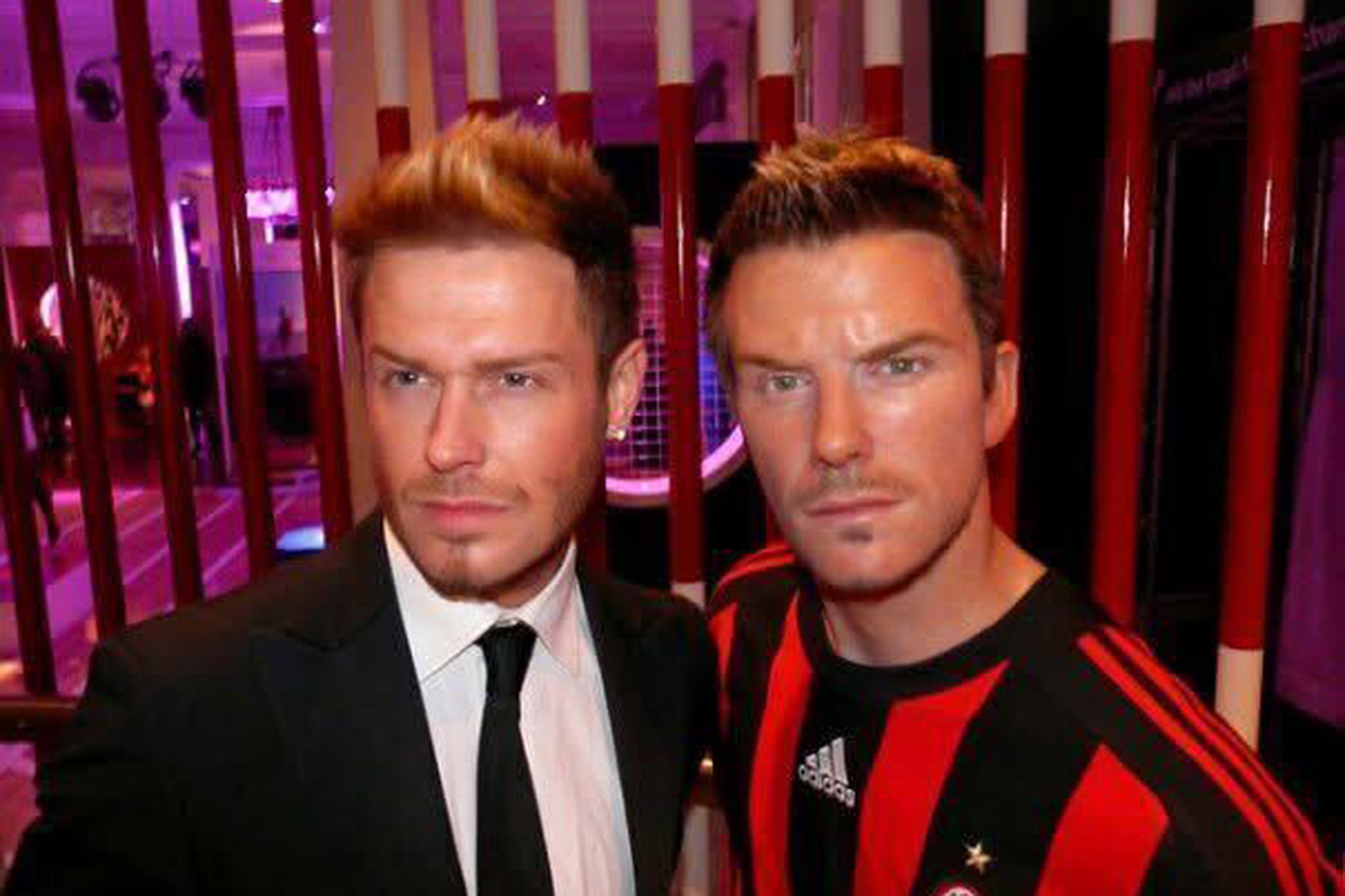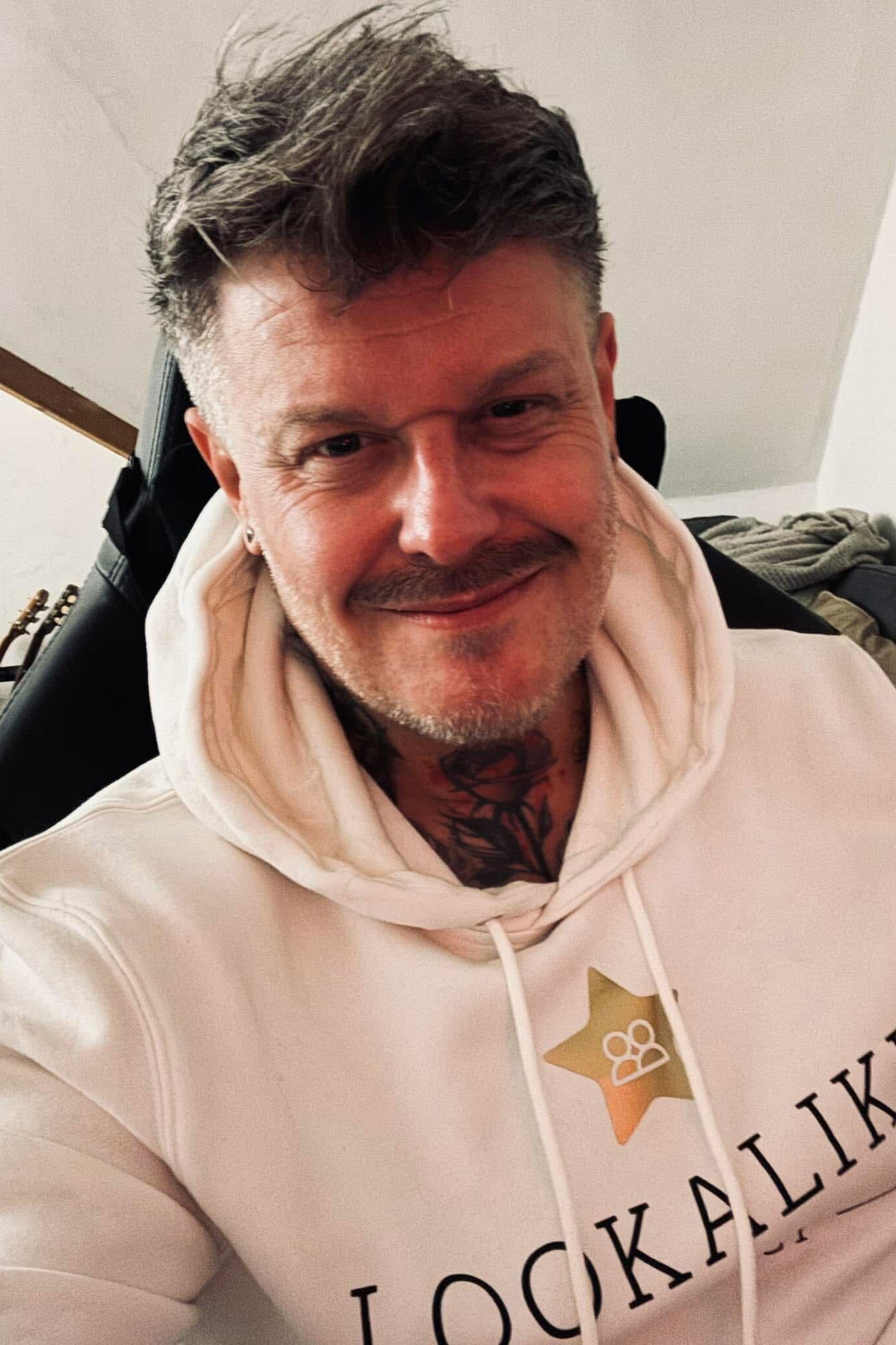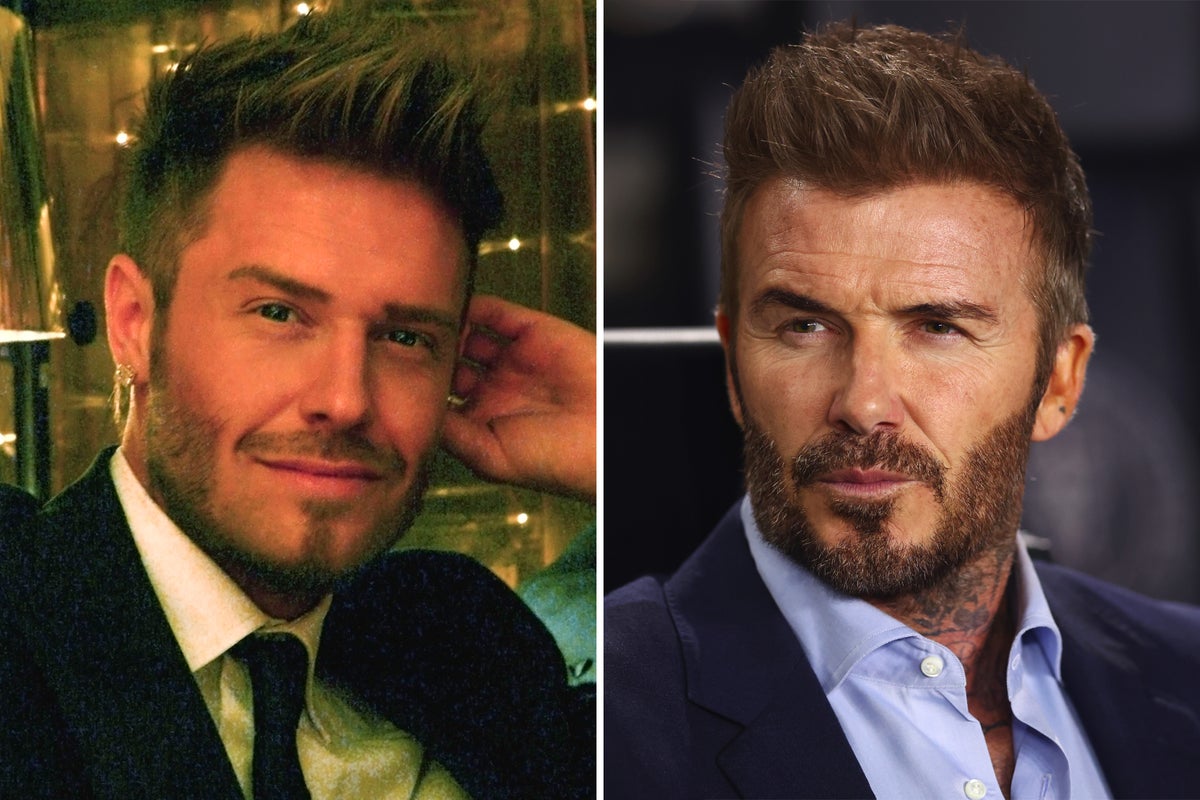Your support helps us to tell the story
From reproductive rights to climate change to Big Tech, The Independent is on the ground when the story is developing. Whether it’s investigating the financials of Elon Musk’s pro-Trump PAC or producing our latest documentary, ‘The A Word’, which shines a light on the American women fighting for reproductive rights, we know how important it is to parse out the facts from the messaging.
At such a critical moment in US history, we need reporters on the ground. Your donation allows us to keep sending journalists to speak to both sides of the story.
The Independent is trusted by Americans across the entire political spectrum. And unlike many other quality news outlets, we choose not to lock Americans out of our reporting and analysis with paywalls. We believe quality journalism should be available to everyone, paid for by those who can afford it.
Your support makes all the difference.Read more
People started telling me I looked like the Manchester United and England midfielder when I was 18 years old and cleaning cars at a car wash in Eastbourne.
A hairdresser friend, who loved him, told me excitedly that David Beckham had dyed his hair blonde and she dyed mine. When I looked in the mirror, I could see I looked like him. I had the same smile, even his mannerisms. But it was more than just looking like him; I even had his traits. I had played football in the same position as Beckham for Eastbourne United.
So I sent my photos to a well-known lookalike agency – and started getting bookings to parties and events, even kids’ parties. I became a full-time David Beckham lookalike in 1988 and it was all-consuming for 20 years.
Early on, I met a girl called Camila who’d come to a local fashion show that I was modelling in, and she came up to me and said: “Quite a few people say I look like Victoria.” I didn’t see it straight away because her hair was long, but when we met again a few days later, and started dating, I noticed her resemblance was striking.
When a lookalikes agency asked if I knew of a “Victoria” as they didn’t have one, Camila joined it – and cut her hair. We went to open a nightclub in Glasgow and ended up on the front page of the Daily Star as “Posh and Becks” – then everybody booked us. It took over our personal life; when we weren’t working, she wore a blonde wig to disguise herself so we could avoid attention. We split up a year later, but carried on working together.
When Beckham got sent off following a red card in the 1998 World Cup match against Argentina, and he faced an intense public backlash, including the burning of effigies in his likeness, we got death threats and flak from people.
Once he turned it around and became the most popular guy again, it all changed for the better for us. The pinnacle of my career was when he became captain of the England team. Sometimes during World Cups I could do three jobs in a day. I’d be earning up to £75,000 a year – which is a lot more than most lookalikes even today. It was relentless.
I was Beckham in the 2002 movie Bend It Like Beckham, I got hired to go to Japan to promote a compilation CD of football songs that included Bell and Spurling’s “Golden Balls” where I was doing TV appearances and events to promote it dressed as Beckham. I told the management company that I was the lead singer in a band, The Copycats, as a Beckham lookalike – and then we signed an album deal. In 2005, a film crew followed our tour of Japan for a documentary for Sky One. I had security as I was getting mobbed for looking like Beckham – but nobody was interested in the music really.
I was about five years into the job and I was looking more like him as I aged. His wardrobe was taking over my wardrobe: Adidas, fake designer suits, football kits. I thought I might as well just buy outfits that I could also wear as my work costume and never wore any of my own clothes. I’d also get free clothes as his body double in commercials for Pepsi, Adidas, Vodafone, and PlayStation, and when I stood in for his aftershave Beckham Instinct.
His hairstyles dictated mine – and I had to keep in shape to look like him. When I was attending events all I ever talked about was him. I often got chased by paparazzi even when I wasn’t working because I had such an uncanny resemblance to him.
I was swept up in all the glamour and parties. It took courage to walk into a room as Beckham full of 300 guests and to be scrutinised. I’d drink to give myself more confidence. It started with red wine, but I’d move on to spirits and cocktails by the end of the night.
My lookalike career happened just after a series of deaths: my mum, my gran and a friend. I thought I was just enjoying myself, but I was drinking to forget and being a Beckham lookalike nearly destroyed me because it blocked out the pain. I had lost touch with myself – and was avoiding my feelings by being caught up pretending to be somebody else. It had taken over my life.
Even though I had faith in myself, I worried about what would happen when the work stopped? How would I get a job with my CV? At first I hoped it’d last forever – I loved the attention – but then it started to feel superficial because everybody was only interested in me as Beckham. What would it be like to be myself?

open image in gallery
David Beckham lookalike Andy Harmer with a waxwork of the iconic footballer (Supplied)
During the 2008 recession my work dried up a bit and I busked in Brighton with a sign saying “Busk It like Beckham” – and made a lot of cash, before bookings started flooding in again fast. But the drinking got worse – and I found it hard keeping in shape like Beckham. When I’d drink too much, I’d gain weight – and I’d go to the gym, cut out carbs and drink lower calorie gin and tonics.
As Beckham was coming to the end of his football career, so was mine as a lookalike. People wanted Messi and Ronaldo rather than Beckham. I’d started to lose my youthful good looks. I felt a massive loss. What am I going to do without Beckham? I was 36. I was going to have to be a part-time lookalike and get another job. I’d appeared in Britain’s Got Talent in 2010 as part of an act known as The Chippendoubles, when I did a football trick to the music of Match of the Day as Beckham – and this prompted me to start my own lookalikes agency in 2015.
But as I gave up Beckham, I became an at-home drinker – and it took over. I was isolated and gained so much weight that I didn’t look like him any more. I spiralled out of control. I wasn’t in a good space or healthy. I was really abusive to myself and addicted. I started wearing scruffy lounge clothes – and stuck my Beckham clothes in the loft. When I’d met Beckham on a Pepsi commercial in 2001, he shook my hand. I was a bit starstruck, I talked about him the whole time and dressed like him, but didn’t know what to say to him. Then it all ended with me coming back to earth with a bang.

open image in gallery
Harmer became a full-time Beckham lookalike in 1988 (Supplied)
There were a lot of issues I’d put on the backburner to be Beckham. It allowed me to put all my grief in a box for 20 years. I quit drinking two years ago and survived a heart attack last year, at eight months sober, which I put down to my party lifestyle. The maddest thing was I’d told a careers adviser that I wanted to be a famous footballer, and in a crazy way I experienced it without playing much football. But I’d lost myself. It wasn’t until I stopped drinking that I had to reflect and find myself again.
I don’t ever look for him when I look in the mirror these days. It is nice to have my own haircut – rather than his look dictating my look, and wearing what I want to wear in my style. Last year I did a couple of jobs even though I’ve retired. But I knew it wasn’t for me any more. I’ve found my feet – and the simple truth is, I prefer being Andy Harmer.

